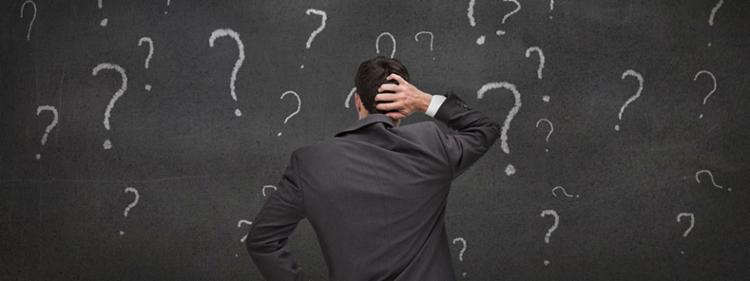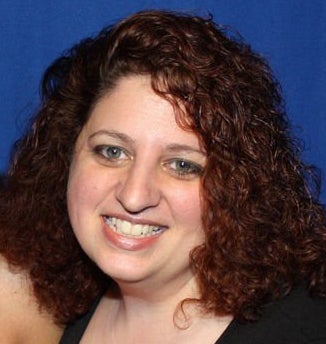How to Buy a House with No Money Down

While interest rates for mortgages are still low, many people are contemplating making the transition from renter to homeowner. Unfortunately for some, coming up with a substantial down payment can prove quite difficult. If you are among these people, you are probably wondering if you are able to buy a house with no money down and, if so, how. You can always find affordable home insurance within our trusted network.
Why Is a Down Payment So Important to Lenders?
Financial institutions need to know that you are committed to the property that you are requesting money to buy. This is particularly true in the wake of the housing market fiasco. Lenders know that someone who has put down a substantial amount of money on a house is less likely to default on a mortgage than someone who has very little to lose by walking away.
Mortgage companies typically require between 10 and 20 percent down when you purchase a home. If you put down less than 20 percent, most mortgage companies will require that you also make payments toward PMI (private mortgage insurance) until you have built up at least 20 percent of the home’s value in equity.
Are There Ways to Get a Loan Without a Down Payment?
If you have absolutely nothing to put down on the house you wish to buy, you have a very limited number of options, but opportunities do exist. These include:
VA Loans:
Only certain people are eligible for VA loans, including military personnel who are currently active, veterans who were discharged for reasons other than dishonorable, and un-remarried spouses of veterans who were killed in action, died as a result of service-related injuries, are missing in action or are prisoners of war.
VA loans provide mortgages with competitive interest rates and offer qualifying applicants the opportunity to purchase a home with no money down and no need to purchase mortgage insurance. In fact, Dana Dratch of Bankrate reports, that “91 percent of VA buyers skip the down payment.” If you quality for a VA mortgage and do not have a lot of money to put down on a house, this product can prove quite beneficial and is worth looking into.
80/20 Combination Mortgages:
This option is typically available only to borrowers who have excellent credit ratings. The way an 80/20 combination mortgage works is that you actually take out two loans instead of one. One loan would be for an amount equal to 20 percent of the value of the house you are planning to buy, and the other would be a mortgage for 80 percent of the home's value.
The funds from the first loan are used as a down payment for the second. Typically, the smaller loan comes at a lower interest rate, while the larger one may come at a higher rate or with an adjustable-rate mortgage.
The benefits of an 80/20 combination mortgage are that it enables you to buy a house with no money down while avoiding the need to pay PMI. However, Barrett Barlowe of The Nest warns that “two loans are better than one, only if the terms of each are beneficial.” She strongly recommends that you review the terms of both loans to ensure that they are favorable before you agree to any kind of combination mortgage.
Rent-to-Own Deals:
In a rent-to-own deal, you will actually be building up sufficient funds to make a significant down payment, but you will be able to live in the house you plan to buy while you do so. The way these deals work is that you rent the house from the homeowner and, in addition to your agreed-upon rent payments, you make an additional payment of about $100 to $200 each month.
This extra money is set aside in an escrow account by the seller. After a given amount of time, usually three to five years, you can apply for a mortgage and purchase the house. All the money in your escrow account will go toward your down payment.
There are some risks involved, however. If you do not or cannot buy the house at the time the leasing period is up, you will be required to forfeit to the seller all the funds you have accumulated toward the down payment. According to Emily Guy Birken of MoneyNing, a large number of people who engage in rent-to-own deals find themselves unable to qualify for a mortgage at the end of their lease.
She advises, “If you are interested in a rent-to-own agreement, it would make sense to talk to a bank about financing before you sign any papers with the seller. Ultimately, however, these agreements are not the healthiest financial path to home ownership.”
Buying a House On Contract:
Real estate investors frequently offer as-is properties as for-contract sales. Most of the time, they will require a down payment, but some investors, such as John R. Lee, owner of Heartland Hideaways, LLC, will sometimes allow buyers to enter into a contract with little or no money down.
The reason these sellers can take this sort of risk is because they continue to hold the deed until the property is paid off in full. If you default on your monthly payments, they can have you evicted from the property and will be able to keep the money you have paid toward it.
While there are risks involved to those who elect to purchase their homes this way, a smoothly-executed contract can make for a win-win situation for both buyer and seller. If your credit rating isn’t spectacular and you have no money to put down on a house, this sort of deal may be your only path to homeownership.
What If I Have Enough for a Small Down-Payment?
So, what if you have a substantial amount of money saved up, but not nearly enough to meet the 10 percent minimum required by most mortgage companies? If you have at least 3.5 percent for a down payment, you might want to look into getting an FHA Loan. According to Kirk Haverkamp at MSN Money, “The Federal Housing Administration is the first place most new homebuyers should look when contemplating a low-down-payment mortgage.”
While the FHA will hit you with mortgage insurance fees, they will also enable you to get a stable loan at a reasonable interest rate even if your credit rating isn’t outstanding.
Are There Other Costs Involved?
Remember that any time you take out a mortgage loan, there are closing costs involved, and these are different from a down payment. According to Zillow, you can expect the closing costs to equal approximately 2 to 5 percent of the value of the home. This can mean thousands of dollars. These costs typically include:
- Loan origination fee
- Credit report fee
- Appraisal fee
- Survey fee
- Attorney fees
- Recording fee
- Underwriting fee
- Discount points, if purchased
- Title search fees and title insurance
- Escrow deposit (for property taxes if they will be paid by your mortgage lender)
Oftentimes, lenders will permit you to roll these added costs into the over cost of your mortgage. If you have not put any money down on the house, be aware that rolling the closing costs into your loan will result in your initially owning more for the house than it is worth.
Is Buying a Home with No Down Payment a Good Idea?
It can be, depending on your particular situation. If, for some reason, you have a pressing need to buy a home now, or you are trying to save a family home from being sold off to strangers, this might be a good idea for you. However, buying a house with no money down does have disadvantages. Besides the obvious fact that your monthly mortgage payments will be higher than if you’d put a substantial amount down, you will ultimately end up paying a lot more in interest.
Take, for example, the VA loan, which does not charge borrowers PMI. Suppose you wanted to purchase a $125,000 house with a 30-year VA mortgage at 3.5 percent interest. With no money down, you would end up paying a total of $77,000 in interest over the life of your loan, whereas if you put 20 percent (or $25,000) down, you would only end up paying $61,650 in interest.
The savings to be had by putting 20 percent down are even more apparent if you will be required to pay PMI without it. If saving money is your ultimate goal, then waiting until you have accumulated funds for a down payment is a better option.
Regardless of how you purchase your home, you will need to insure your investment with a suitable homeowners insurance policy. So when the time comes, be sure to contact a local independent agent for assistance with finding a suitable and competitively-priced policy.
